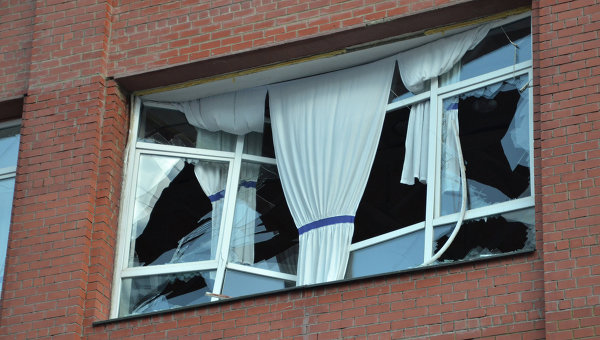Meteorite fragments rain down on Russia, Kazakhstan

A hall of meteorite fragments has hit three regions of Russia, and neighboring Kazakhstan, Russian Emergencies Ministry officials confirmed on Friday morning.
As of mid-day Moscow time, over 400 people had reported injuries as a result of the strikes. Most people had been hurt by shattering glass and many of the injuries seemed to be concentrated in the hard-hit Chelyabinsk Region.
An estimated 20,000 emergency response workers have been mobilized. Background radiation levels reportedly remain unchanged - an important consideration in an area with a fair number of nuclear facilities.
Reports about whether this was one large meteorite or many smaller ones initially varied, but the national space agency, Roscosmos, confirmed by early afternoon that the object had been a single meteorite, a report given earlier by emergency officials.
"Verified information indicates that this was one meteorite which burned up as it approached Earth and disintegrated into smaller pieces," deputy head of the Russian Emergencies Ministry press office, Elena Smirnykh said.
The European Space Agency's experts said there is no link between the meteorite and the asteroid, ESA said on its official Twitter, but provided no details of its analysis.
The 2012 DA14, which is roughly 50 meters (165 feet) in size, will pass 27,000 kilometers (17,100 miles) from the Earth - closer than satellites in the geosynchronous orbit, which is 36,000 kilometers.
The 2012 DA14 flyby will take place at 19:24 GMT, about 16 hours after the meteorite incident in Chelyabinsk Region which left at least 400 injured, mostly from glass broken by the shock wave as the meteorite flew past.
The asteroid was linked to the meteor by numerous media reports. Tatiana Bordovitsina, an astronomy professor at Tomsk State University in western Siberia, told RIA Novosti two hours before the ESA statement that the meteorite could have been debris preceding the asteroid, but said a more thorough examination of the incident was needed.
NASA confirmed that 2012 DA14 is not on collision course with the planet, but said if the asteroid hit the Earth, the resulting explosion would be 1,000 times more powerful than the nuclear bomb that obliterated Hiroshima in 1945.
